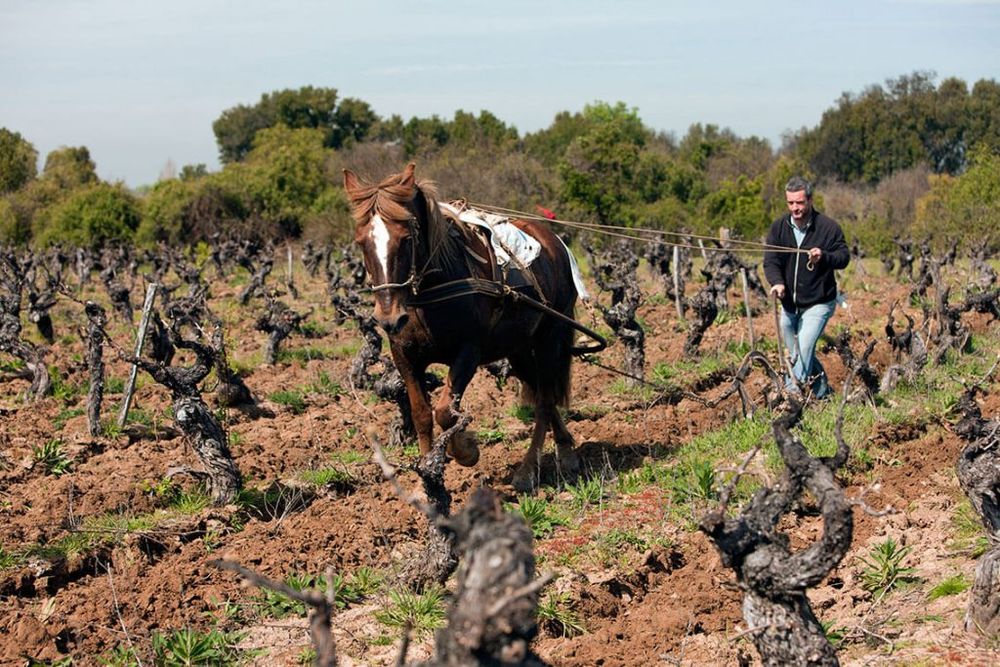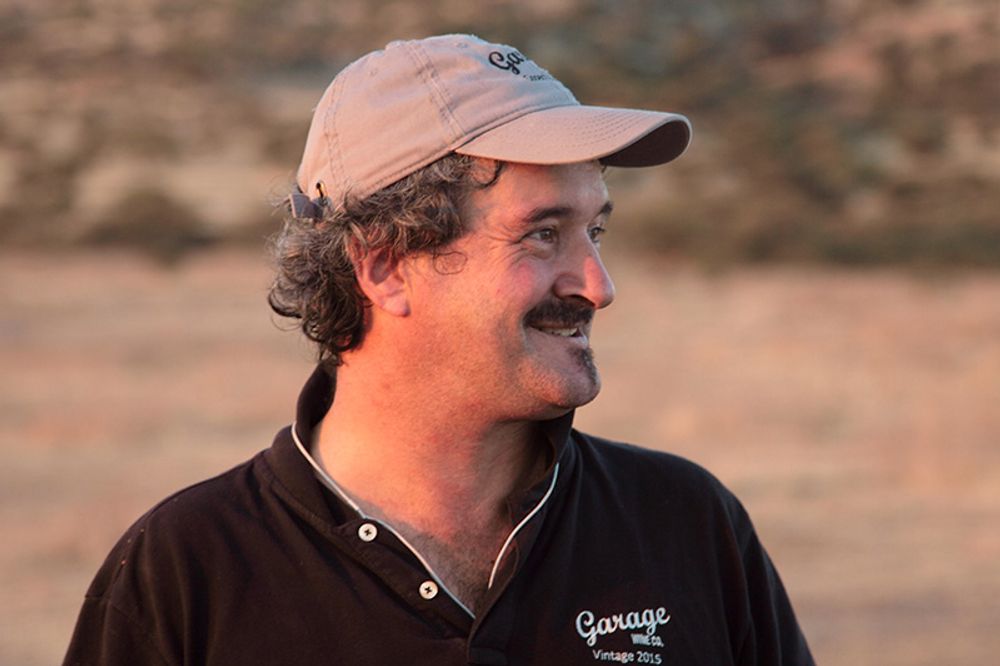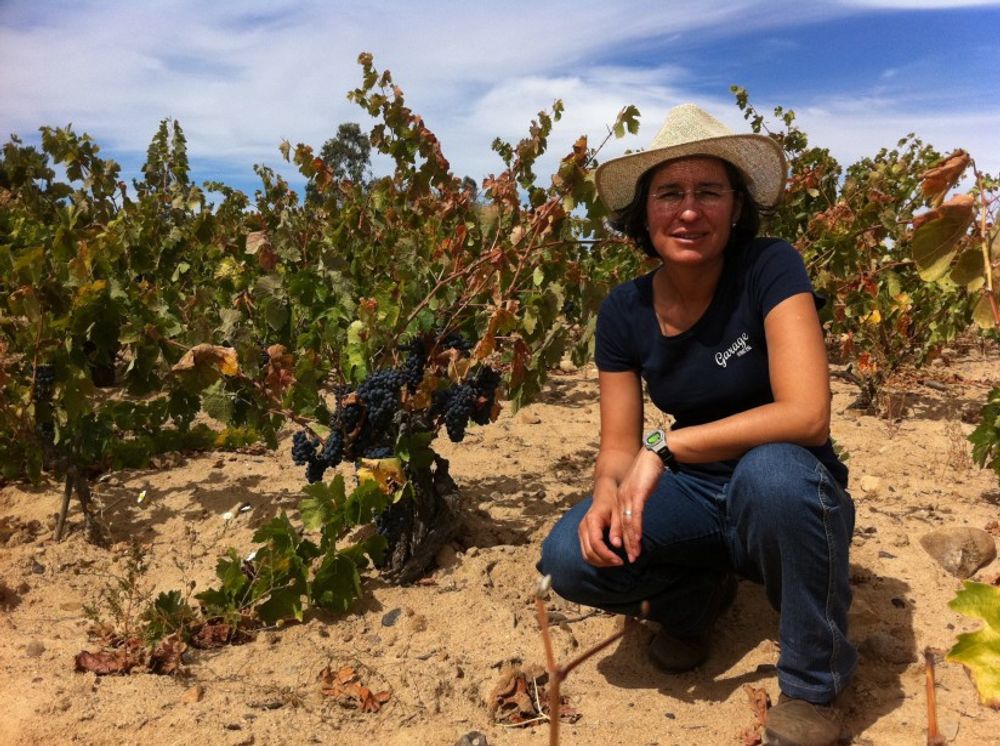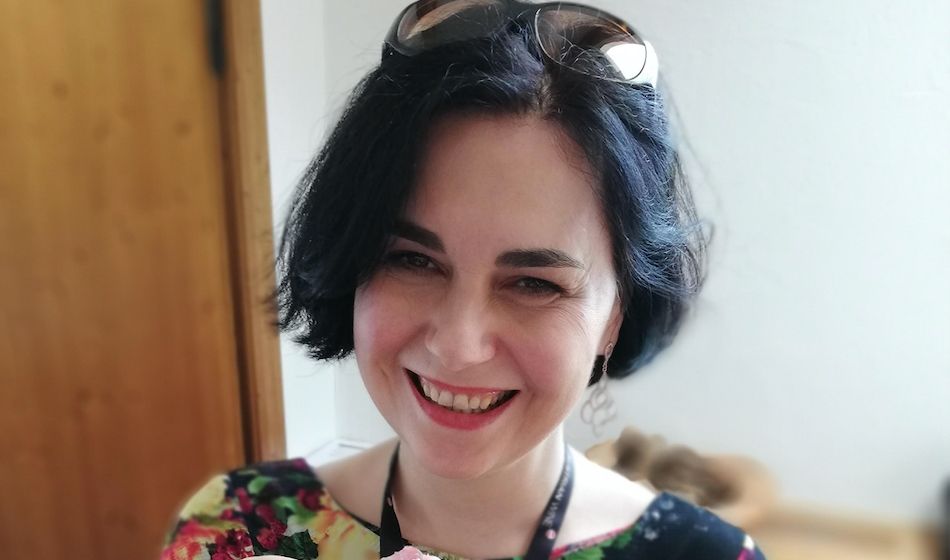The new Alt-Chile wine movement is a million miles away from the supermarket wine shelf, with exciting wines and winemakers looking to offer something very different from Chile, says Derek Mossman Knapp of The Garage Wine Co.

Making Chilean wine the Garage Wine Co way
As a Canadian winemaker you have set up home and your winemaking life in Chile. Why did you decide on Chile and how do you see its future?
Yes, I am very positive on Chile. I have put my heart, sweat and pocketbook into making some of the lesser known bits into something more.
For several years now (more than a decade) things have been growing and evolving, and today next to what is a very successful “industry” (their word not mine), there is a burgeoning space where the smaller, viñerons of many stripes and shapes, are thriving.
Let’s call it Alt-Chile — Alternative Chile. There are so many groups now. Initially there was MoVI, El Movimiento de Viñateros Independientes, which effectively democratised the possibility of ¨small wine¨. Then Vigno, Vignadores de Carignan, came along in the Maule pushing the envelope for a group of wines associated with origin.
After that we had the Canchos Deslenguados (“pigs with loose tongues”) wine event (a kind of a Lollapoluza of wine) and natural wine was recognised in Chile.
Now there are so many AG’s or Asociaciones Gremiales (modern day guilds) that I find it hard to keep track. Alt-Chile is a tremendous rennaissance, and one that contributes to the tremendous mosaic of wines that Chile has to offer.
Change is positive. See how quickly the mainstream begins to adopt ideas from the fringes. Various large wineries today are interested in Pais and Cinsault— this is natural and it is good. The trade has grown up, and part of growing up is rejecting the past, and then promptly embracing it. What Miguel Torres is doing with Estelado (fizz made of Pais) is fantastic and makes a bonafide difference in the community.
Most all large wineries have their “small line” where they have armed a “winery within a winery” and promise artisan style wines. I am not being facetious. I think it is positive.

Bibendum, says Mossman Knapp, helps gets his wines in to super premium outlets.
You work with Bibendum in the UK. Are people ever skeptical about you working with someone so big?
I think that would be envy wearing a cloak of skepticism. It’s true Bibendum has grown, but if I am their smallest supplier I’m proud to be so. They believed in us from the beginning and I think together we have opened up spaces in UK trade for the Maule, for different varieties (Carignan) and yes: even for Chile. I have the best job in the world being able to work with small viñerons in Maule and Itata and Bibendum has clients like Hand and Flowers, Gingerman Group. I could go on…
What most people do not imagine is that Michael (Saunders – the big boss) has been with us in person on horseback in the deep Maule. Moreover the ethical trading section of Bibendum purchased a good deal of wine “en primeur” Chilean wine after the big earthquake in 2010. It was a means of helping us invest in the community at a crucial juncture for these viñerons. Along the way Willy, Andrew, Zack and the London team have built a trade that connects with small viñerons in the Maule and Itata with one of the toughest markets in the world. It’s amazing.
And to this day every vintage we do a special bottling of one of the en primeur properties and Walker Wodehouse sells this Ploughmen Series exclusively.
You travel a lot? How important is UK in the grand scheme of things for The Garage Wine Co?
The UK is an important market for us. It is a competitive market that helps us learn where the world wine trade is going.Many think it is time to be focusing on Asia today, and we do sell a few pallets in China and Korea, but it is more important to grow in the UK. If you can make it there you can make it anywhere.

I heard you at a tasting talking about native yeasts and you said it was akin to ¨breast feeding a new born¨. Can you explain?
It is akin— absolutely. Using native yeasts is like choosing natural breast milk for a new born. There is no guarantee the infant will cruise through adolescence without worry, but there’s no better start to life. That said, there are wineries where for whatever reason the winemaker cannot use his or her native yeasts, and we should be supportive of them, knowing that science has designed modern supplements, but these are no replacement for the real thing.
And what are the advantages?
Natives contain more different yeasts that work at different stages and lend greater complexity I think. They also work better with higher-acid wines like Maule Carignan, and they are less efficient in converting sugars to alcohol, thus creating better balanced wines. I could go on!
Why were selected yeasts ever developed to be “more efficient converting sugar to alcohol” anyway? Since when do we want a more alcoholic wine? Since when is more alcohol better?
How did you decide which grape varieties to focus on?
It has never been about the grape varieties. If you look at one of our labels there are five lines of text and the variety appears on line four. For us it is all about place, vineyard and viñeron.
For example:
Lot# 47
Truquilemu Vineyard
Empedrado D.O. Maule
Carignan field-blend
2014
We make nine wines from specific vineyard sites or ¨Vino de parcela individual¨. These are anywhere from three quarters of a hectare to a hectare and a half. Each site is bottled separately – we fill between 2,800 bottles and 7,000 per site.
Should we have blended them into fewer branded wines and reducing the number of SKUs we produce to improve efficiency? No. That’s just not what we are all about, and there are already plenty in the world.
Tell us about your appearance on ITV’s Wine Show with Joe Fattorini?
It was a terrific experience to be able to share that side of the company with a larger audience. I admire the lengths both Joe Fattorini and producer Melanie Jappy went to to get the story they wanted. The story of Matt Wilson (photographer) and I trying to finish his book in the weeks after the quake was seemingly far-fetched for a wine programme to say the least. I am told it made good TV.
It was a kind of blind audition. I was taken to the Ampersand thinking I was trying to open a smart hotel account in Kensington. The producer asked me questions about Chile and the like and I began to fret about wasting so much time telling anecdotes about Chile when I had only the one more day to work the market in London. Then I started talking about after the quake and suddenly I realised I was storytelling to a scriptwriter and not a wine buyer.
Months later a small team came out to film in the Maule— it was a trip. I had no experience and as my wife would say ¨a face for radio¨. Watching it almost a year later (Episode 5 is without doubt the best episode!) I can see what they wanted to do all along. The programme helps to open wine up to a broader audience and Joe, a relative unknown before the experience, is terrific at making wine more interesting to a wider audience. Will he become the Jamie Oliver of wine is not for me to say, but Lord knows the trade needs everyone who can help convince more people to enjoy wine for the beverage that it is.
I am remembering a column of Andrew Jefford’s a few years ago when he probed into the effect of the wine blog and the democratising of wine writing. Jefford asked whether blogs and internet wine community would open wine up to a broader audience, or reduce it to a closed circuit of buffs and geeks and label-drinkers.
Amidst the Tsunami of information about wine online today I think The Wine Show stands out as a positive force that takes wine to more people in an honest and engaging way. I think it gets more people spending a little bit more on a bottle, and this allows them access to artisanal producers and a chance to get in touch with their planetary side. Wine does not have to be terribly expensive to be smart. It is not a luxury product; its nourishing. “Vino es un alimento” as we say in Chile.
You have a great deal of energy about the wines you make and where you sell them. What inspires you?
I worked for years as a creative [misfit] in Chile. I thought some great ideas were put forth that might have begun fascinating endeavours, but they were systematically thwarted by the powers that be because they were too “different”. Chileans refer to “lo que se quedo en la tintera” literally meaning the ideas that stay stuck in the inkwell.
Not any more. Today I am independent and I am inspired by the past as much as I am about the future with the freedom to be able to create and craft whatever and with whomever I like. No more family-office boards of directors diluting ideas until they comfortably resemble what the neighbours are doing. We just do it.
What are your plans and dreams for the future for The Garage Wine Co?

Derek and his wife Pilar inspire each other to make better wines
We have recently introduced the Single Ferment Series. My wife Pilar is taking charge of these wines working with fruit that our same growers farm, but co-fermenting fruit from various. Each fermentation, rather than site, becomes the wine’s name. For example, from 2015 we have: The Soothsayer’s Ferment – Cinsualt 2015 and First Salvo Ferment– Pais 2015.
Why Soothsayer’s Ferment?
My wife mocked my appetite for just one more trailer load of old-vine fruit. She said: “I have no idea what winery you are intending to ferment this fruit in, but at this rate it sure as shiznet isn’t going to fit in ours.”
She was right, and we had to put the newly harvested bits on top of the other in a tanks already fermenting. It was literally the Ides of March when it occurred the first time, so the soothsayer name seemed fitting. In 2016 I convinced her to buy even more fruit.
- If you want to know more about Derek Mossman Knapp and his pioneering winery, The Garage Wine Co, check out its website or talk to Bibendum about its range in the UK.









































